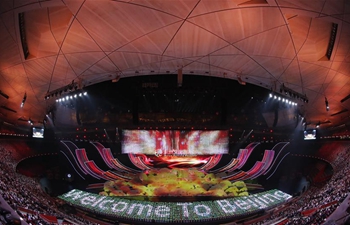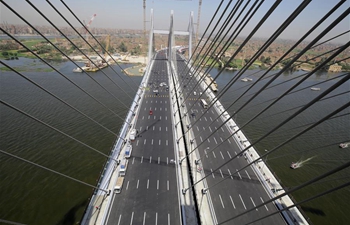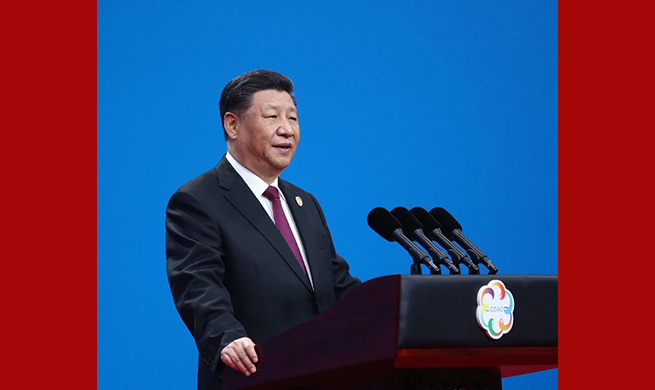CHICAGO, May 16 (Xinhua) -- A measured approach may be advisable when dealing with diabetic macular edema, showed a study posted on the website of Northwestern University (NU) on Thursday.
In the study, 702 patients with diabetic macular edema (DME) were randomly assigned to observation, laser photocoagulation or an anti-VEGF injection treatment, aflibercept. If patients in the observation or photocoagulation groups experienced significant vision loss, defined as losing the ability to identify at least one line on a standard eye chart, they were switched to the injection treatment.
After two years, the researchers found no significant difference between earlier initiation of injections versus only resorting to the injection treatment if visual acuity worsened. In total, up to three-quarters of eyes in the study never required the injection treatment.
Each aflibercept injection has an average Medicare cost of 1,850 dollars, according to the study, and all eye injections carry a risk of infection or inflammation, so avoiding injections if possible is preferred.
So reducing anti-VEGF treatments in these eyes while maintaining good vision has clinical and economic advantages for patients and public health, the researchers hold.
In addition, eyes in the laser photocoagulation group had fewer injections compared to the observation group, indicating some protective benefit.
DME, an accumulation of fluid in the retina from leaking blood vessels, is a major cause of visual acuity loss worldwide.
The study has been published in JAMA.













